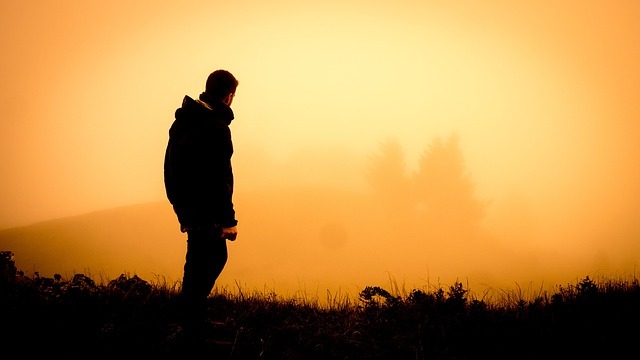“The fires are a wake-up call.
They will get worse.
We humans think we are in charge.
We think we are indispensable to God, but he is showing us that he is in control.
He is telling us that we need to find God.
– Millie Fudge, Christian survivor of the 2018 prairie mega-fire, Ashland, Kansas
These should be searing words for all those, God-fearing or not, who line up behind President Trump in their denial of human generated climate change, or simply support him for family-values judges. Searing, because whether we view scientific laws as one of the many manifestations of God or not, they underlie the very real facts that threaten our survival – and, indeed, have resulted in survival insights that are incorporated into basic religious laws.
The physics behind climate change – fossil fueled emissions cause the atmosphere and oceans to absorb far more heat from solar radiation than before – is basic enough so that the major consequences are unfolding as predicted, only much faster than predictions of the International Panel on Climate Change reports, which duly emphasize conservative consensus.
Not emphasized in those reports is the lopsided uncertainty of action vs. inaction: the costs of inaction, and the ensuing climate catastrophe, are far greater and more certain than the costs of action.
Physical laws influence every aspect of life and physical environment. They are not known to be broken, even when we create interplays that seemingly defy them. Flying seemingly defies gravity, but if physical laws crucial to flying are ignored, we suffer the consequences, as airline accidents illustrate.
At all scales, physical laws are in control, from the dynamics of energy that fuel life, down to the molecules of our genes, to the movements of water and heat through air that we call weather.
Such diverse interplays often create unpredictable complexity. This does not preclude understanding, nor introduce “mysterious ways” of God: ultimately, we understand the laws underlying that unpredictability, and assess probabilities to describe it. (“What’s the chance of rain today? 50/50.”) And the results of these laws can appear seemingly miraculous when tiny probabilities do occur, as illustrated regularly by national lotteries.
Two important insights from the planetary playout of physics and life deeply affect our survival, however. Firstly, that playout implies no inherent inequality among various life forms: nothing is above physical laws. The evolution of those forms is driven by both biological and physical (both planetary and extraterrestrial – e.g., asteroids) processes, however, that can and have substantially shaped their existence in complex, unpredictable ways.
Secondly, the interplay of these processes over evolutionary time indicates that collaboration enhances survival, and is enhanced by equal treatment, in terms of survival, within and among species.
There are moral lessons here for all who want to survive. The first lesson underlies social insurance: we all build collaborative connections that will help us when unpredictable needs arise. More collaboration enhances survival, both individual and general. Our long-term existence relies deeply on treating the survival of our planetary biodiversity with the same equality towards which we strive morally within humanity.
The second lesson underpins motivation for the first: we are more likely to collaborate with those that we believe will treat us equally and fairly.
These two basic lessons also underpin the Second Great Commandment of the New Testament: love thy neighbor as thyself.
But survival requires an extension of that love from us to all life on this planet, because, ultimately, we depend on vast systems of life forms for our existence, directly as a result of the complex interactions of those laws: ecosystems provide clean air, beneficial climate, clean water, and maintain a genetic library for needed new forms of crops and medicines. Ecosystems are our physical lifelines. Destroying them for short term gain is suicidal. Far more people, including unborn babies, will die inhumanely from their destruction than, for example, the unborn babies of today that concern so many current voters. It is one of the most dangerous threats to basic family values. Are we, as voters, adequately concerned about this unfolding apocalypse?
We can choose to survive by recognizing and acting on the facts resulting from scientific laws, or we can perish through willful ignorance of them, whether or not we believe in the manifestations of God. From international climate change negotiators to individual citizens, we all must understand and act on this choice.
Mary Ellen Harte Ph.D., is a biologist who writes on climate change and population.
The MAHB Blog is a venture of the Millennium Alliance for Humanity and the Biosphere. Questions should be directed to joan@mahbonline.org
The views and opinions expressed through the MAHB Website are those of the contributing authors and do not necessarily reflect an official position of the MAHB. The MAHB aims to share a range of perspectives and welcomes the discussions that they prompt.
